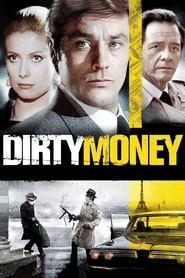Tina Hassannia 2013 retrospective in Slant is pretty good on this film, calling Jean-Pierre Melville's swan song "a fascinatingly garbled tune that teems with formal inconsistencies and yet still manages to carry a pained melody". That wasn't quite my experience of watching the film (which was oscillating between engaged and enervated), but there's something to be said for her analysis:
In form and structure, Un Flic demonstrates a weary nonchalance toward the mechanical processes of filmmaking, heist-pulling, and criminal-nabbing. Outside of the two set pieces, the narrative operates somewhat flimsily and with only a coerced determination to keep continuity. [Detective] Coleman is frequently coming across people or scenes that challenge his masculinity; his informant is a transgender person, whom he eventually ridicules and assaults for giving him false information, telling her she should dress like a man. Cathy’s role isn’t so much a character as a cipher, a proxy for his uneasy relationship with [arch-enemy mobster] Simon, with whom he exchanges more glances than words.
She summarises with:
Melville’s cinema-as-process in Un Flic feels as calculated as it is in many of his previous works, but there’s a distinct vein of misanthropic defeat coursing in this film that’s encoded into empty gestures and portrayals of people who appear to only be going through the motions.

